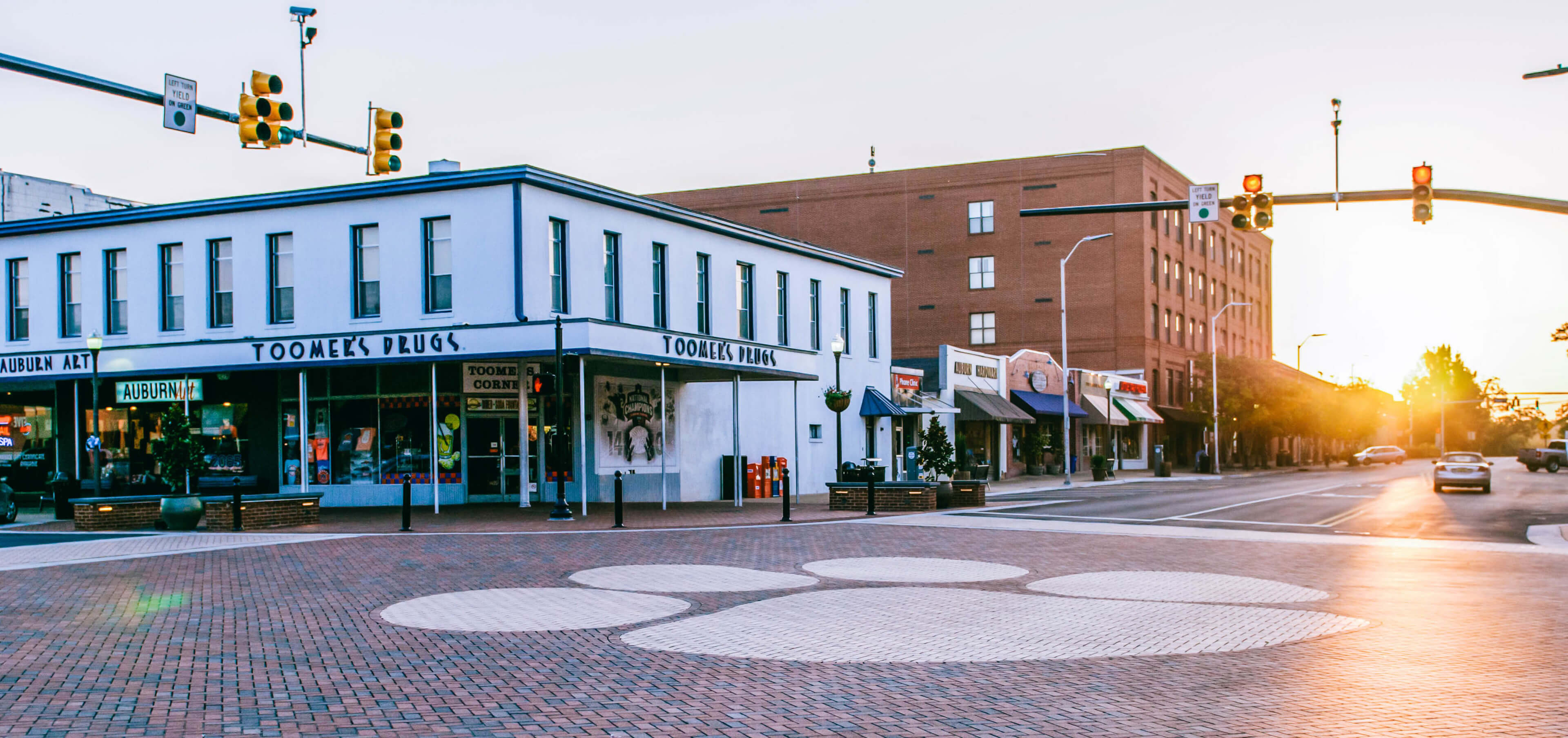Permit Information

Development Services Building
171 N Ross St
-
(334) 501-3040 -
webplanning@auburnalabama.org -
- M-F
- 7:30AM-4:30PM
-

Scott Cummings, P.E.
development services executive director
Building Permits
Accessory Structure
Used for storage sheds, detached garages, barns, arbors, free standing fire places, gazebos, pool houses and other similar structures.
Residential Alteration
A remodel (also known as an alteration) is for changes to the building’s interior, such as moving structural or non-structural walls, bathroom and kitchen remodels and other similar modifications.
Residential
Applies to detached one- or two-family dwellings and one-family townhouses not more than three stories in height.
Swimming Pool
For both commercial and residential swimming pools.
Residential Addition
A house addition is an extension or modification to the footprint to an existing house. This may include a second-story addition, dormer, footprint expansion, porch deck, room or space.
Residential Accessory Dwelling
An accessory dwelling unit or detached accessory dwelling unit (sometimes called a mother-in-law apartment) is a separate living space within a house or on the same property as an existing house.
Fire Protection System
Required for all installation of and changes to fire protection systems, including sprinklers, standpipes, fire alarms, fire mains, kitchen hoods and other suppression systems. Shop drawings are required for all fire protection system permits.
Mechanical/Mechanical Sub-Permit
Required for the installation, repair or alteration of boilers, furnaces, air-conditioning systems, ventilation, exhaust and refrigeration systems and their related components.
Plumbing/Plumbing Sub-Permit
Required for all new plumbing or gas work EXCEPT for minor repairs. Minor repairs include:
- Repairs involving only the working parts of a valve or faucet
- Clearance of stoppages
- Repair of leaks or replacement of defective valves or faucets, provided that no changes are made in the piping to the fixture or appliance
Electrical/Electrical Sub-Permit
Required for all electrical work EXCEPT for minor repairs. Minor repairs include:
- Replacing of switches, sockets and receptacles
- Repairing of non-commercial lighting fixtures and neon signs if the sign is not to be altered or removed from the building
- Repairing of portable electrical equipment and appliances
- Repairing of heating equipment, air-conditioning units and refrigeration equipment, unless motors are to be replaced
- Low voltage wiring except where it penetrates a fire rated assembly or runs in a non-combustible plenum
Commercial
A building that is used for commercial use. Types can include office buildings, warehouses or retail. This is generally any building that is not residential or an accessory structure to a residential structure.
Commercial Addition
An extension or modification to the footprint to an existing commercial structure. This may include a second-story addition, dormer, footprint expansion, porch deck, room or space.
Commercial Alteration
A remodel (also known as an alteration) is for changes to the building’s interior, such as moving structural or non-structural walls, bathroom and breakroom remodels and other similar modifications.
Minor Alteration
Permits for replacing roofs, siding, windows and other similar items.
Multi-Family
Multiple separate housing units for residential inhabitants that are contained within one building or several buildings within one complex.
Multi-Family Addition
An extension or modification to the footprint to an existing multi-family structure. This may include a second-story addition, dormer, footprint expansion, porch deck, room or space.
Multi-Family Alteration
A remodel (also known as an alteration) is for changes to the building’s interior, such as moving structural or non-structural walls, bathroom and kitchen remodels and other similar modifications.
Development Review Team Permits
DRT–Site Plan
These are typically single-lot developments that do not involve the construction of new city streets with right-of-way dedication. DRT Site Plan applications most commonly include commercial, retail, condominium, apartment and industrial developments. Townhomes are sometimes reviewed as a Site Plan development if being subdivided off of existing right-of-way.
DRT–Subdivision
These are developments involving construction of new city streets with dedication of new right-of-way. Subdivision developments typically also involve platting new, fee-simple lots associated with a new residential or commercial subdivision.
Planning Permits
Subdivisions
Subdividing land within the City of Auburn corporate limits plus unincorporated land within 5 miles of the corporate limits must be reviewed by the Planning Department. There are three types of subdivisions that the Planning Department is responsible for reviewing: Administrative (4 or less lots), Preliminary and Final. Preliminary and Final subdivisions are heard by the Planning Commission. Administrative Subdivisions (i.e. Subdividing a Lot, Lot Line Erasure, Lot Reconfiguration, etc.) are reviewed in-house by appropriate City Departments.
Rezoning
An application for rezoning must be submitted if you wish to change the land use options available for your piece of property.
Annexation
A petition for annexation must be submitted if you wish to annex your property into the Auburn city limits. The subject property must be contiguous to property within the Auburn city limits or Auburn University property.
Conditional Use
Conditional Use applications are required to have Planning Commission and City Council approval.
Board of Zoning Adjustment (Variance)
An application for a variance to the Zoning Ordinance must be submitted if you do not meet all of the standards in the Ordinance. Variances may be granted for issues involving lot size, setbacks, impervious surface limits, parking, etc.
Banner
Each business is allowed three banner permits per calendar year and each banner permit is valid for 30 days. You are required to take down the banner at the end of the 30 days. Banners must be displayed on the building of the business’ property.
Sign
The signage allowed for a business is based on a number of factors. A drawing of the sign with the dimensions is required with all sign permit applications.
Home Occupation
Home Occupation permits are required to operate a business out of your residence. After receiving the permit, you will need to take it to the Revenue Department at City Hall to receive your business license.
Urban Chicken Keeping
The urban chicken-keeping ordinance allows Auburn residents to keep backyard chickens upon applying and receiving a permit from the Planning Department.
Historic District–Certificate of Appropriateness
All properties located in a designated Auburn Historic District are required to file an application for a Certificate of Appropriateness (COA) for any exterior work that may be visible from a public right-of-way in from of the structure. In addition to the COA application, details should be provided describing what work is going to be undertaken. If staff deems it to be routine maintenance, no Certificate of Appropriateness is required.
Water Resource Permits
Grease Trap
This permit application shall be submitted and approved prior to the installation of a grease trap for any commercial developments within the City of Auburn. The Grease Trap Size Calculation Data Sheet and specifications for the proposed grease trap shall be included with the permit application. Approved grease trap installations shall be coordinated with representatives of both the Engineering Services Inspection Division and the Inspection Services Department.
Water Main Connection
This permit application shall be submitted and approved prior to any connections being made to the Water Works Board of the City of Auburn’s distribution system. All approved connections shall be coordinated with and done in the presence of a City of Auburn Engineering Services Inspector or a representative of the Water Works Board of the City of Auburn.
Sewer Main Connection
This permit application shall be submitted and approved prior to any connections being made to the City of Auburn’s sanitary sewer collection system. All approved connections shall be coordinated with and done in the presence of a City of Auburn Engineering Services Inspector or a representative for the City of Auburn Water Resource Management Department.
